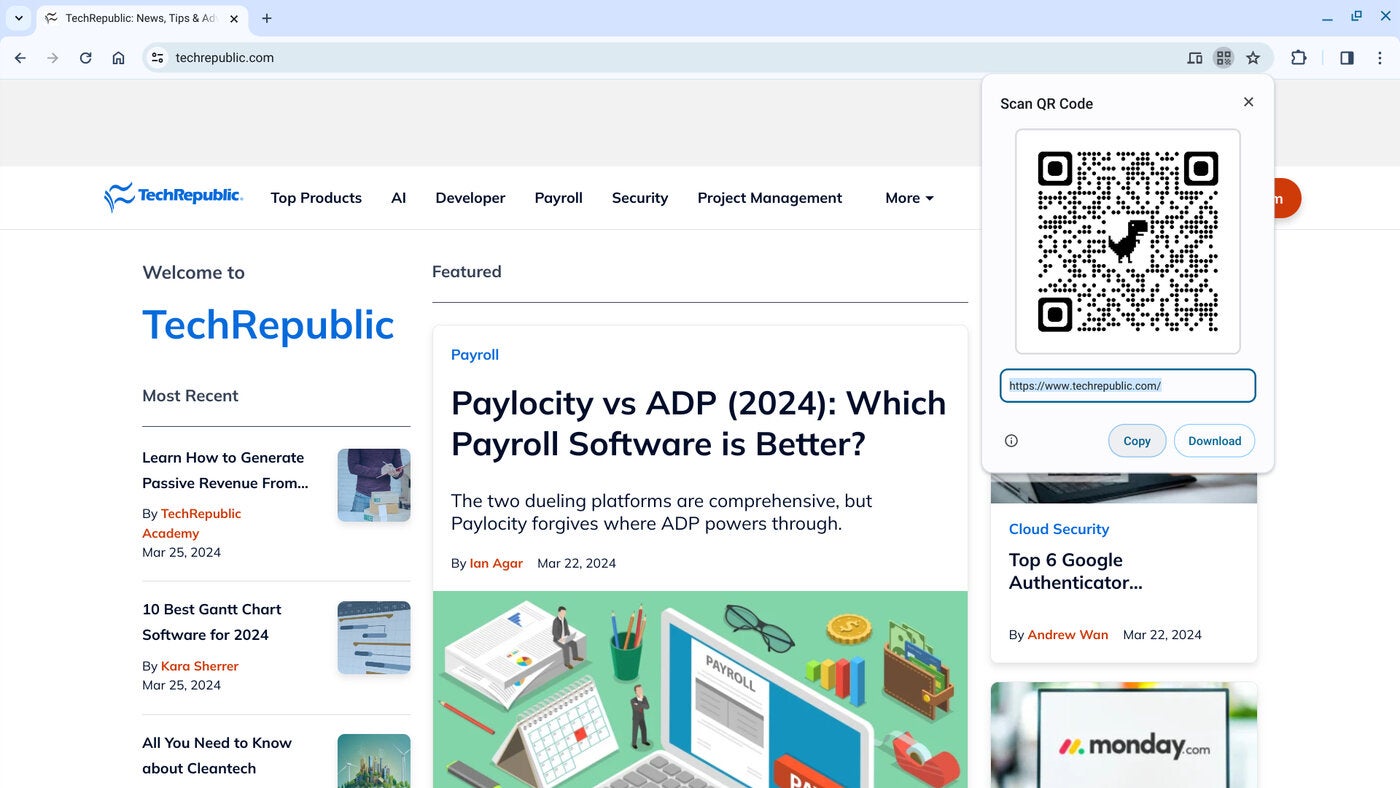
QR codes let people access information with a smartphone; instead of typing a URL, you point your smartphone camera at a QR barcode and tap to scan. There are two types of QR codes: One links to one set location on the web (known as a static QR code), and the otherone sends customers to an updatable web location (known as a dynamic QR code).
On an iPhone, Apple’s camera app includes QR code scan support. On an Android device, Google Assistant (with the words “scan QR code”) and the Google Camera app (with Google Lens mode), let you point your camera at a QR code, then tap to scan and search.
We’ll look at various methods that offer reliable ways to create QR codes to provide contactless access to web pages and other information.
Google’s Chrome browser includes a free QR code generator for web pages (Figure A). The free QR generator feature is built into the Share system in Chrome on both Android and iOS and is available in every desktop version of Chrome.
Note: Different versions of Chrome provide different QR code displays. Currently, Chrome on Android and desktop versions display the QR code with a dinosaur in the middle, while Chrome on iOS provides a standard QR code that lacks the dinosaur logo.
In Chrome on Android, browse as usual to a web page, then:
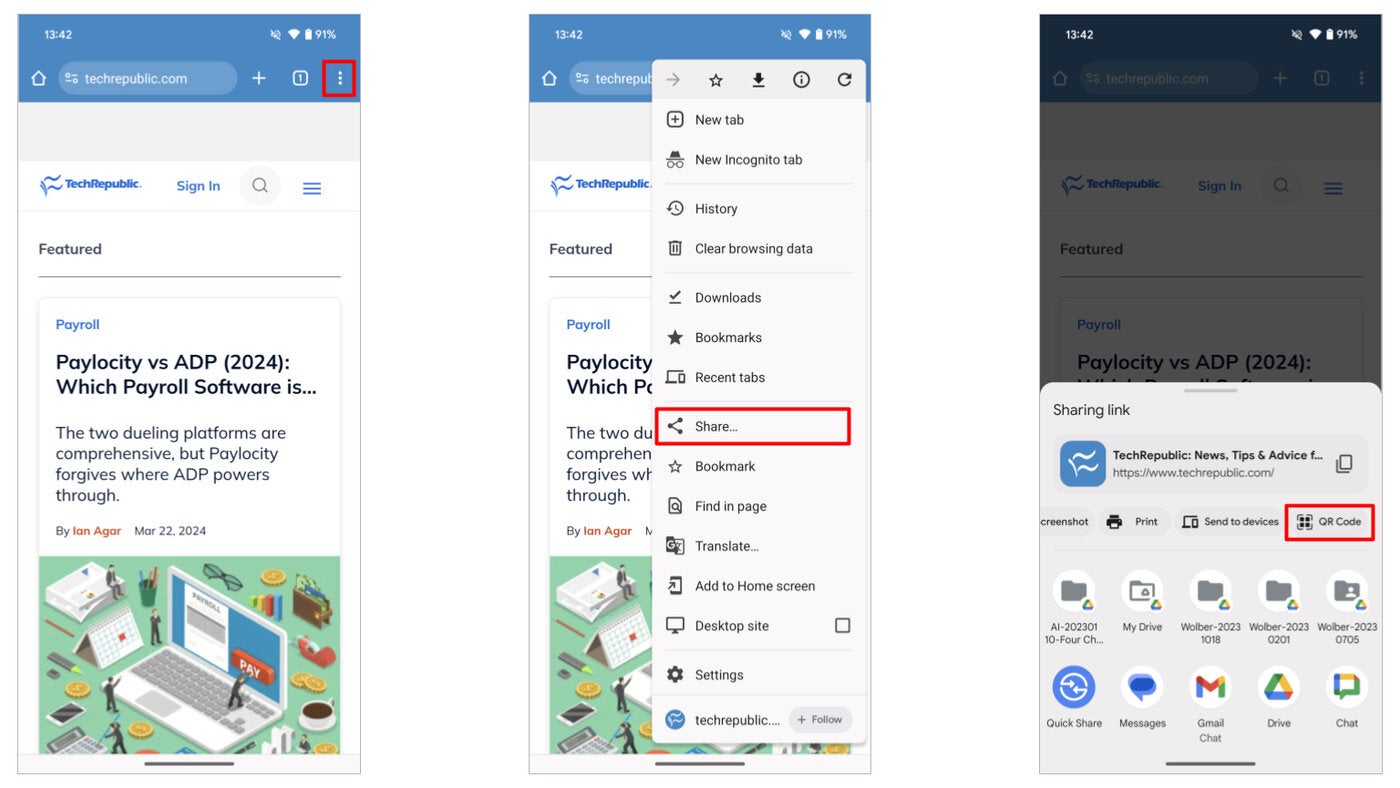
In Chrome on iOS, browse as normal to a web page, then:
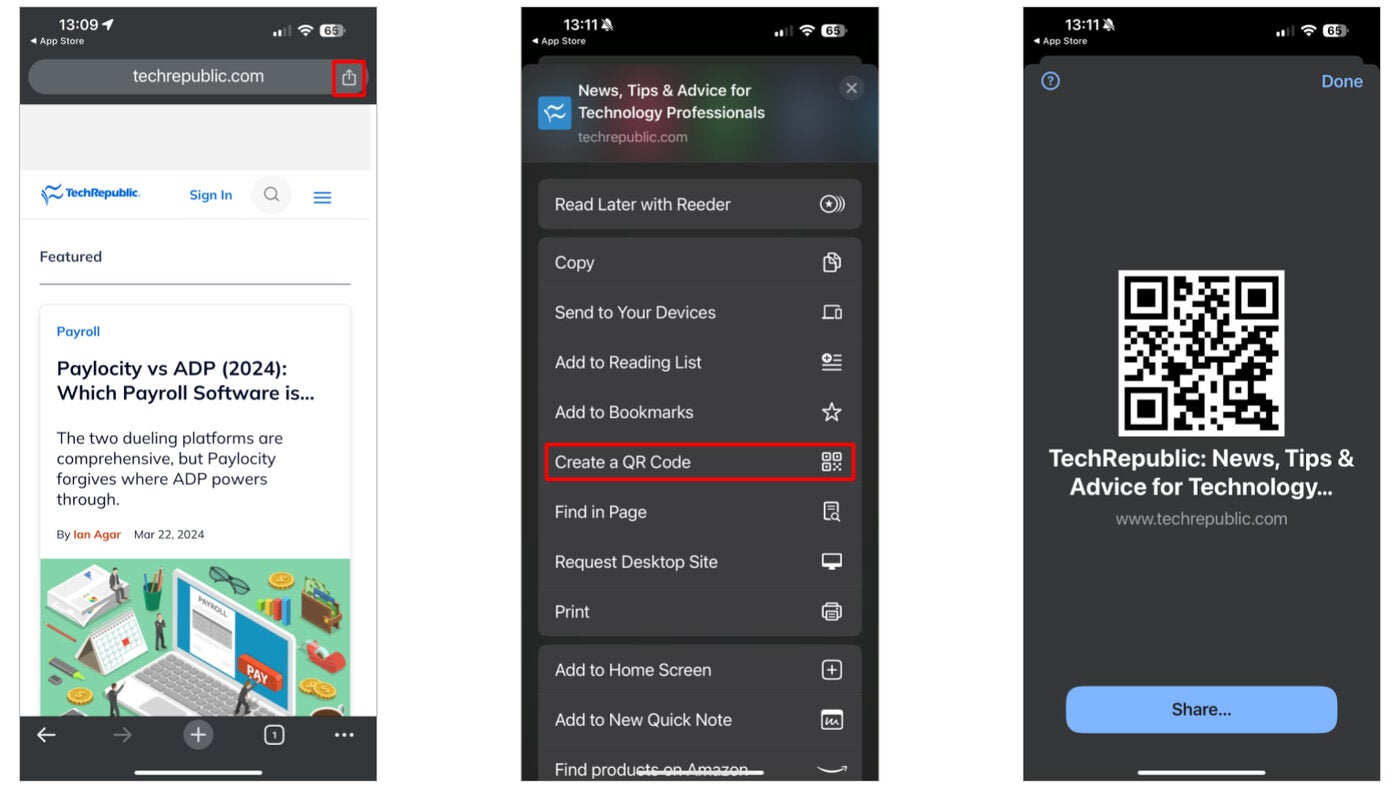
In desktop versions of Chrome on Windows, macOS or Chrome OS devices, right-click or tap with two fingers on a touchpad to display the Create QR Code option. The generated QR code displays in the upper-right area the browser. You may then scan the image or select the Download button to save it (FigureD).
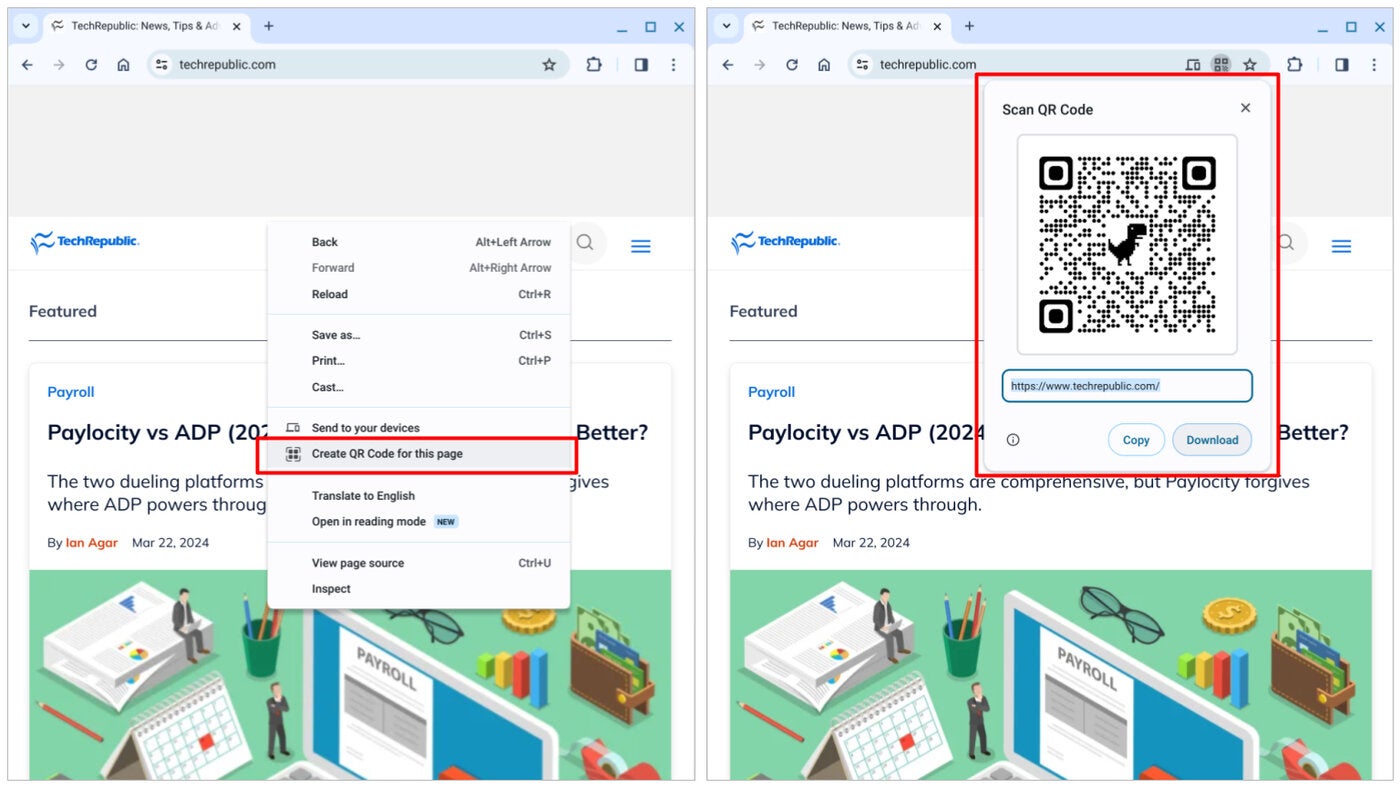
QRbot lets you create codes that link to a web page, as well as codes that encourage other actions, such as adding a contact, connecting to Wi-Fi, sending an email or SMS, or making a call (Figure E).
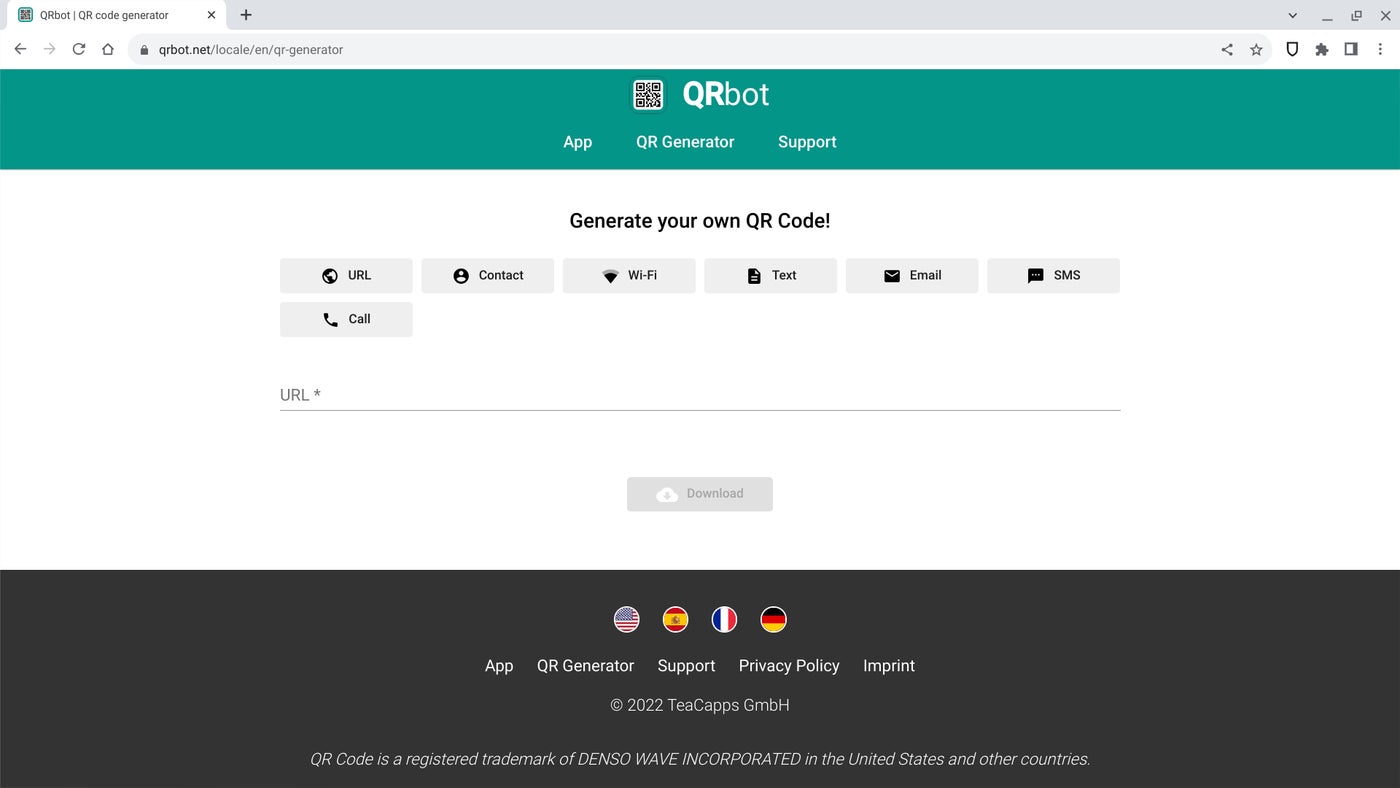
To create a QR code with QRbot:
QRbot is available for free on the web and as Android and iOS apps. It also offers a pro option for Android and iOS ($6.99 and $14.99, respectively), which removes ads and provides access to extra features. Additionally, the upgrade on iOS lets you change the QR code design, giving users the ability to adjust colors, add a custom logo and select from more themes.
Those who use Windows may want to consider installing the free Barcode Generator app by Vevy Europe – S.P.A. from the Microsoft Store. As with Chrome and QRbot, the QR Barcode Generator provides several prebuilt action options to create QR codes for email, Twitter, Facebook, SMS, Wi-Fi, Flickr and YouTube among others (Figure F). Select an action, enter your data, then save the generated image.
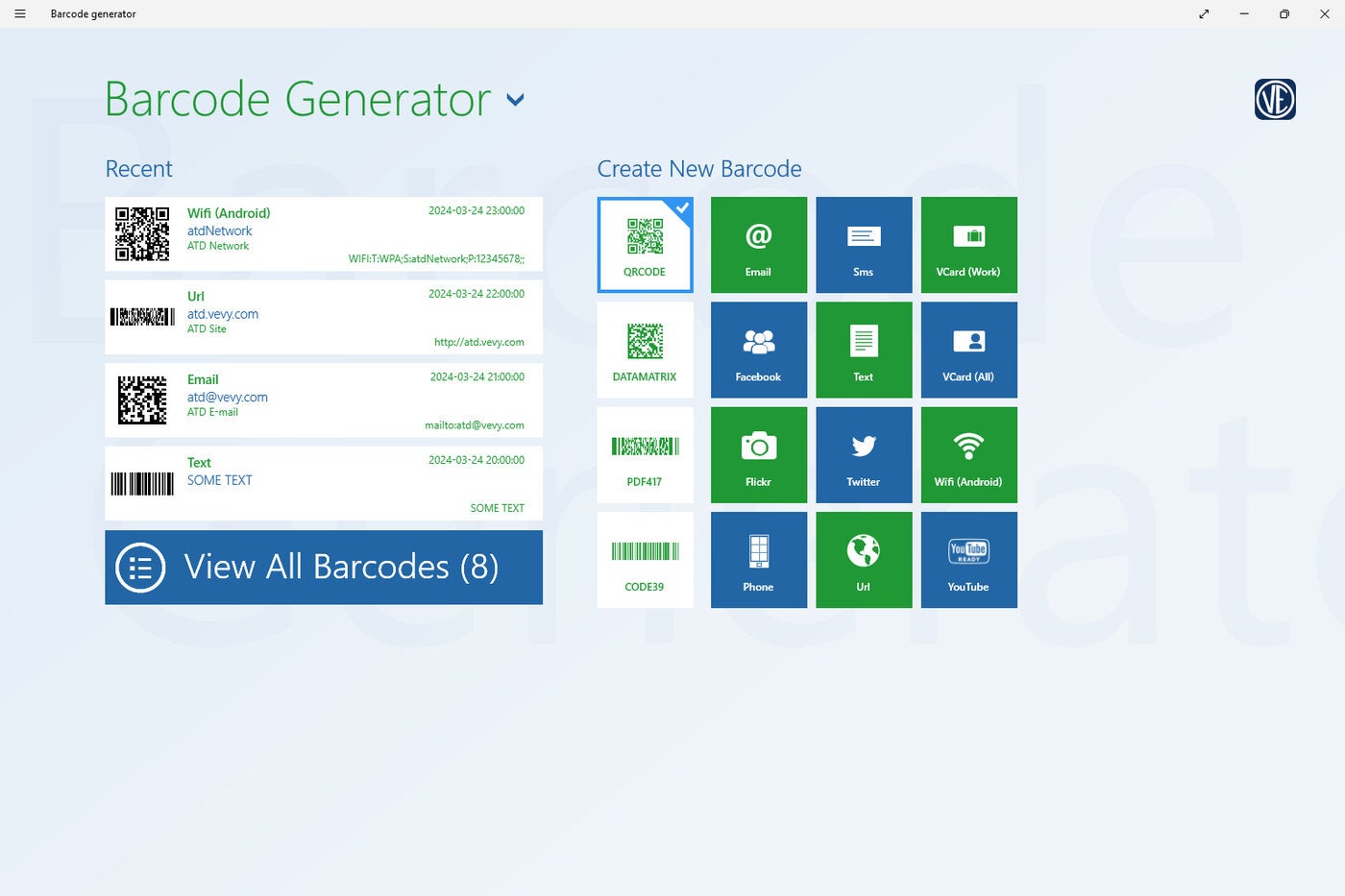
On macOS, iQR codes – QR Code Art Studio provides fast, fill-in-the-blank creation of QR codes for phone numbers, SMS, email, locations, web links, contact info, calendar events, Wi-Fi access and more (Figure G).
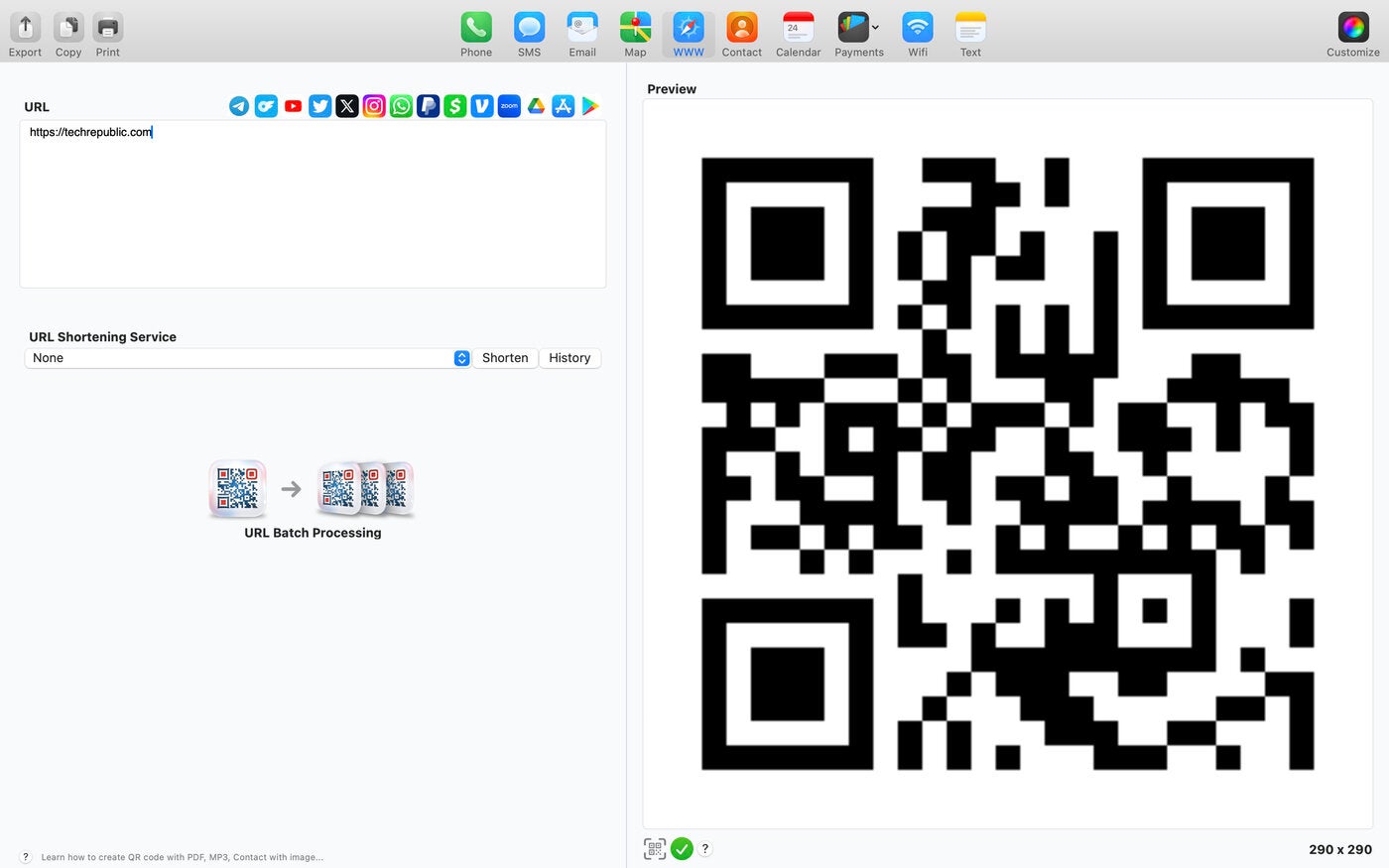
This $14.99 app lets you make more adjustments to the display of the QR code than any of the above options. These tweaks include pixel styles, corner and resolution sliders, foreground and background colors, as well as customizations of the corner control points. The app even provides a built-in tool that assesses the readability of your QR code, along with tips to help ensure reliability when your potential customers use their QR code readers.
There are many other ways to create a QR code; here are three more.
Adobe suggests that QR codes make it easy for people to access a “website, social media accounts, and other online resources.” With an Adobe account, you can use its free Adobe Express QR code generator, which offers a few style, color and file format options (Figure H).
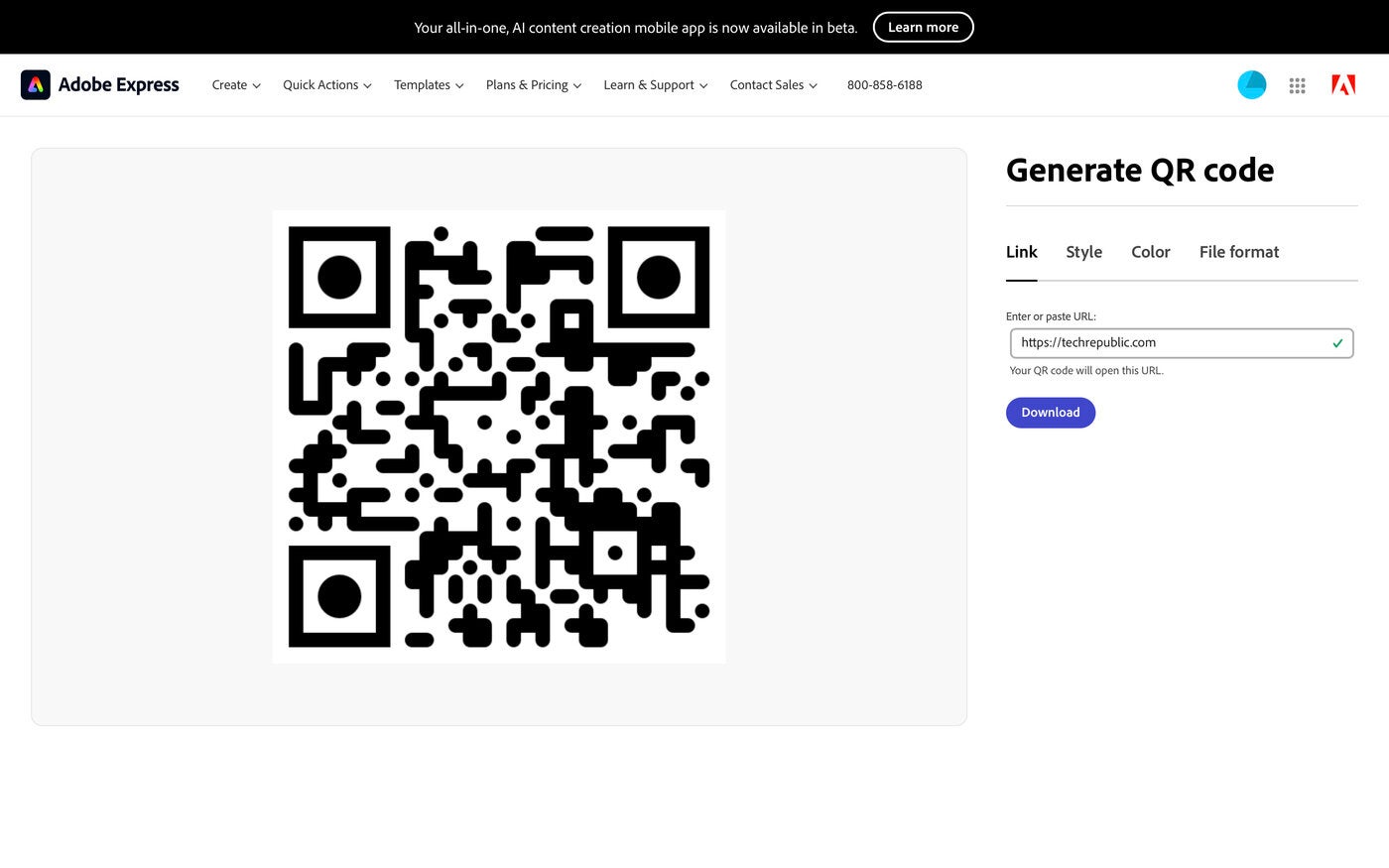
The online design platform Canva provides a QR code generator in its web-based editor. With a free Canva account, you can create a QR code (Figure I) and customize the margin size, background color and foreground colors, then place the graphic as desired in your design.
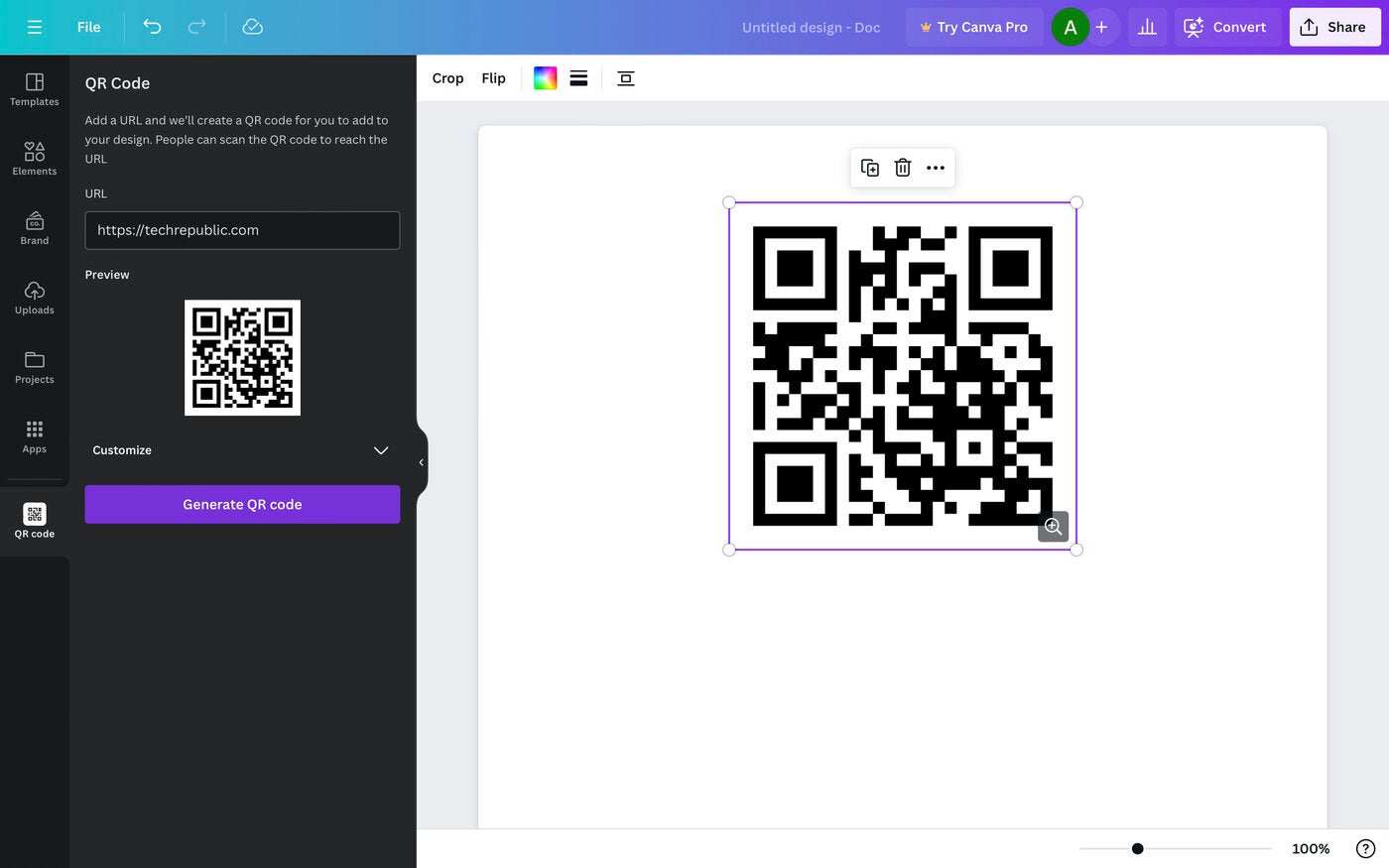
Even AI chatbots are entering the QR code-generation competition. Subscribers to ChatGPT Plus from Open AI, maker of the popular chatbot ChatGPT, can create a QR code with a prompt (Figure J). For example, try:
Create a QR code that links to https://techrepublic.com
The system responds and gives you a link to the QR code images you requested. Modify the above prompt as desired to create a QR code that connects to whatever public link you prefer.
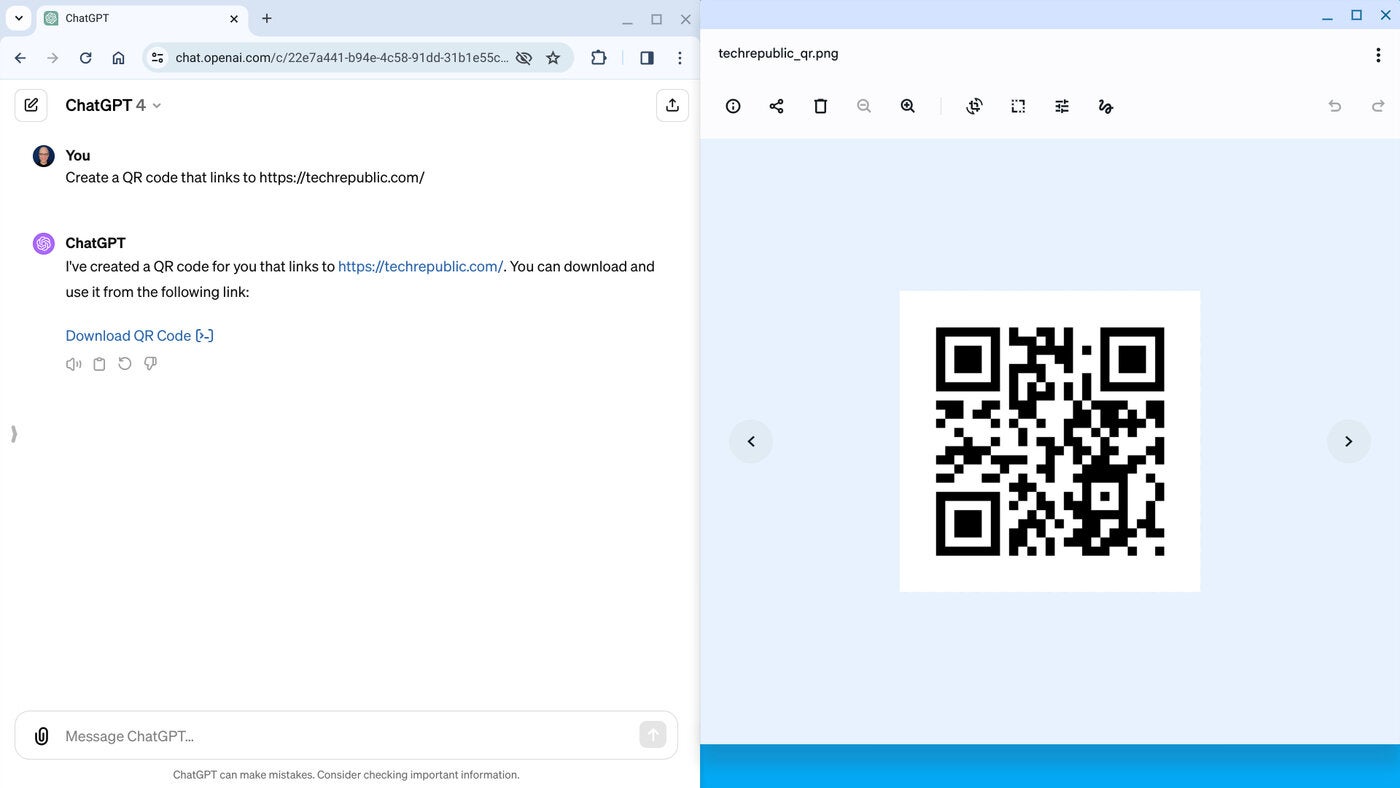
The use of QR codes, especially for marketing and accessing online menus, proliferated during COVID-19 efforts to minimize physical contact points. Many sales systems, such as OpenTable, Shopify and Square, let business owners generate multiple QR codes for customers.
Do you use QR codes at your organization? If so, what types of information do you link to for your customers: menus, social media marketing, Wi-Fi sign-in)? What systems or apps do you use to create QR codes? Let me know how you use QR codes on X, formerly known as Twitter, at @awolber.